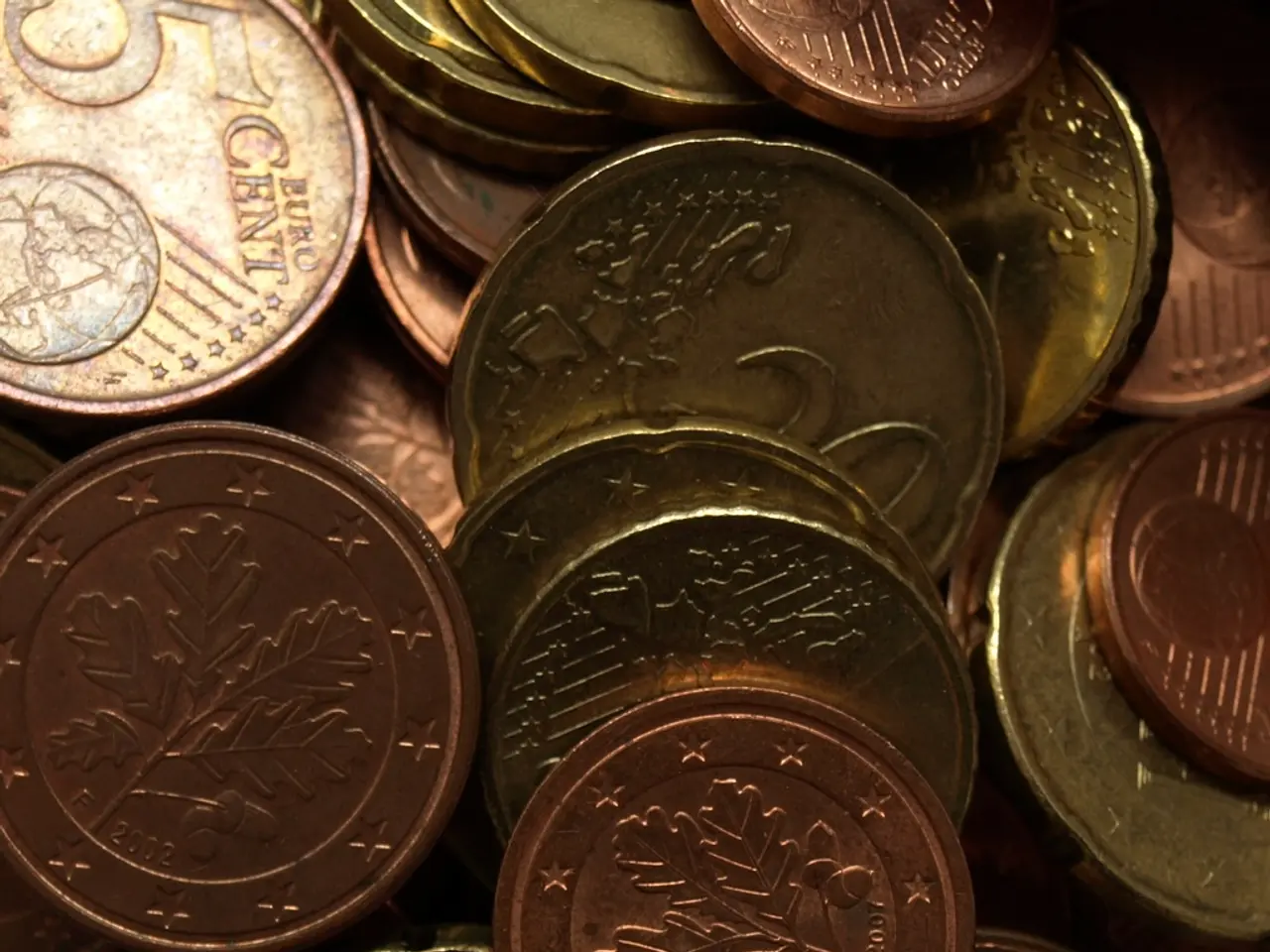Bitcoin Reserves Established in America: Could Africa Adopt the Same Strategy?
In the ever-evolving world of blockchain technology, African central banks are gearing up to respond to the potential impact of the U.S. establishing a Bitcoin reserve. With a cautious yet innovative approach, these banks aim to preserve monetary sovereignty and financial stability.
Several key trends and reactions among African central banks suggest their likely approach. Regulatory moves towards crypto oversight are on the rise, with Ghana's central bank planning to license bitcoin and cryptocurrency platforms as part of a new regulatory framework. This move signifies African central banks' desire to better manage the local currency and financial data by tightening control over crypto activities.
South Africa's recent court ruling that cryptocurrencies are not covered under current exchange control regulations has raised concerns about capital flight and financial instability. The South African Reserve Bank is appealing this ruling, indicating a desire to close regulatory gaps and maintain control over cross-border capital movements in response to crypto's disruptive potential.
Interest in Central Bank Digital Currencies (CBDCs) rather than cryptocurrencies is also evident. For instance, Morocco's Bank Al-Maghrib is actively developing state-backed digital currencies to harness digital finance benefits while avoiding uncontrolled volatility linked to cryptocurrencies like Bitcoin.
Regional banks such as the Central Bank of West African States (BCEAO) and the Bank of Central African States (BEAC) remain cautious about Bitcoin but are discretely exploring CBDCs.
Given these patterns, if the U.S. establishes a Bitcoin reserve, African central banks may enhance crypto regulation and supervision to capture transactions formally, improve financial data accuracy, and control currency impacts. They may also strengthen legal frameworks around cross-border crypto flows to prevent destabilizing capital flight and accelerate CBDC development to offer stable digital alternatives under central bank control, insulating their currencies from Bitcoin's volatility.
Meanwhile, the incubator scene in Africa is thriving. Lisk's Blockchain Incubation Hub program, backed by Swiss-based CV Labs, has graduated 23 African startups. Notable participants include Tata iMali (South African fintech), TrendX (Nigeria-based tokenization platform), Afrikabal (Decentralized agricultural marketplace in Rwanda), Pokecoin (South Africa-based NFT marketplace), Jamit (Decentralized podcast platform), and Nomachain (Kenya's blockchain-powered rent-to-own property startup).
Applications for the second batch of the incubator are open until April 12, with the program set to begin on May 19. VISA has also opened applications for Cohort 4 of its Africa Fintech Accelerator Program with a deadline of Mar. 25, 2025. African blockchain talent firm Web3Bridge has opened the waitlist for its 13th cohort, and USAID has announced the Women Entrepreneurship Incubator program in Kenya with application details available.
As the African blockchain landscape continues to evolve, it's clear that both regulators and innovators are working hand in hand to create a sustainable and secure digital future for the continent.
- African central banks are preparing to react to the potential impact of the U.S. establishing a Bitcoin reserve, maintaining a cautious yet innovative approach to preserve monetary sovereignty and financial stability.
- Ghana's central bank is planning to license bitcoin and cryptocurrency platforms as part of a new regulatory framework, which suggests a desire to better manage local currency and financial data by tightening control over crypto activities.
- The South African Reserve Bank is appealing a recent court ruling that cryptocurrencies are not covered under current exchange control regulations, indicating an effort to close regulatory gaps and maintain control over cross-border capital movements.
- Central Bank Digital Currencies (CBDCs) are preferred over cryptocurrencies by many African central banks, with Morocco's Bank Al-Maghrib actively developing state-backed digital currencies to harness digital finance benefits.
- Regional banks such as the Central Bank of West African States (BCEAO) and the Bank of Central African States (BEAC) remain cautious about Bitcoin but are discretely exploring CBDCs.
- If the U.S. establishes a Bitcoin reserve, African central banks may strengthen legal frameworks around cross-border crypto flows to prevent capital flight and destabilizing effects, while also accelerating CBDC development for stable digital alternatives.
- The incubator scene in Africa is thriving, with Lisk's Blockchain Incubation Hub graduating 23 African startups, including Tata iMali (South African fintech), TrendX (Nigeria-based tokenization platform), and Nomachain (Kenya's blockchain-powered rent-to-own property startup).
- Applications are open for the second batch of the incubator until April 12, with the program set to begin on May 19, while the Africa Fintech Accelerator Program by VISA has an application deadline of Mar. 25, 2025.
- African blockchain talent firm Web3Bridge has opened the waitlist for its 13th cohort, and USAID has announced the Women Entrepreneurship Incubator program in Kenya with application details available.
- The African blockchain landscape is evolving with collaboration between regulators and innovators to create a sustainable and secure digital future for the continent.
- Investors can consider financing startups within the African blockchain ecosystem, such as Tata iMali, TrendX, or Nomachain, as they leverage blockchain technology for various projects like fintech, tokenization, and property management.
- As the digital economy expands, individuals are encouraged to expand their knowledge in areas like technology, education-and-self-development, finance, and lifestyle to fully appreciate the potential benefits and manage risks associated with investments in the blockchain sector, or even potentially engage in general-news discussions, sports talk, and weather updates on decentralized platforms.




